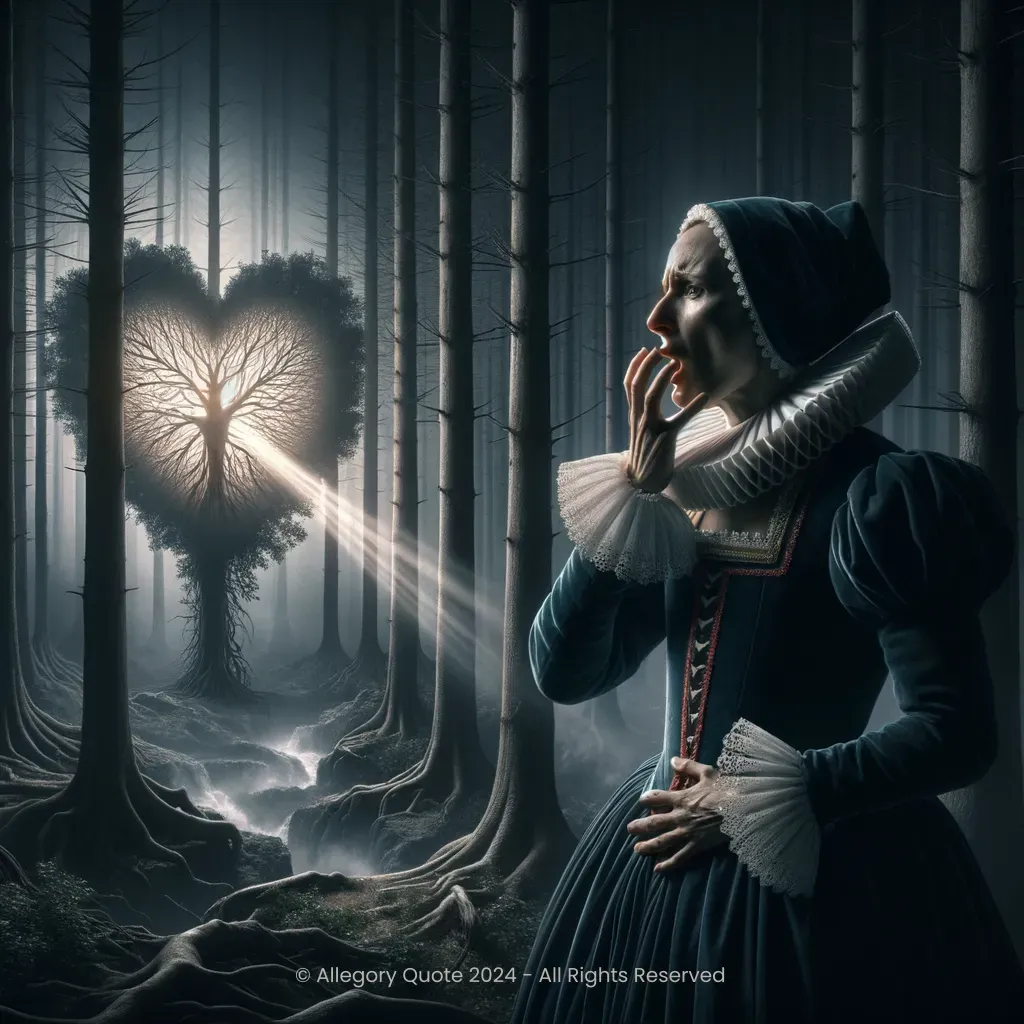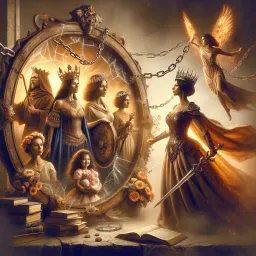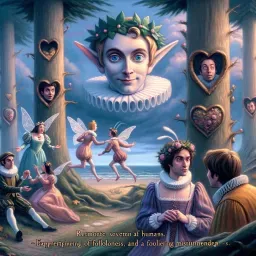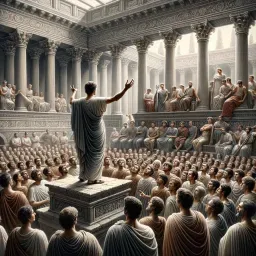”My tongue will tell the anger of my heart,
or else my heart concealing it will break“

0
0
0
0
- Meaning
- This quote expresses a powerful sentiment about the importance of voicing one's emotions rather than suppressing them. The speaker acknowledges that failing to express their anger and keeping it bottled up will lead to emotional devastation. It emphasizes the human need for communication and the detrimental effects of repressing intense emotions, suggesting that truth and transparency are vital—even if they lead to conflict—because the alternative is unbearable suffering.
- Allegory
- The image uses a darkened forest to symbolize the oppressive nature of unspoken emotions, encircling the central figure who is torn between speaking out and remaining silent. The contorted face and hand near the mouth underscore the inner conflict. The heart-shaped tree with a radiant crack represents the imminent breaking of the heart due to concealed feelings. Finally, the beam of light breaking through the forest symbolizes hope and the liberation that comes from expressing one's emotions, inviting the viewer to reflect on the importance of emotional transparency.
- Applicability
- In personal life, this quote reminds us of the importance of expressing our feelings openly rather than repressing them. Suppressed emotions can lead to stress, health issues, and deteriorations in mental well-being. It encourages people to seek honest communication as a means to maintain healthy relationships and emotional balance. Whether in friendships, family dynamics, or professional settings, sharing one's true feelings can lead to more authentic and empathetic interactions.
- Impact
- This phrase has had a profound impact on both literature and psychological discussions regarding human emotions. By capturing a universal truth about the human condition, it has been referenced in various contexts to emphasize the importance of emotional honesty. It has inspired countless discussions about mental health and the effects of bottled-up emotions, thereby contributing to movements stressing the significance of mental wellness and open communication.
- Historical Context
- The phrase comes from the historical period of the late 16th century, specifically around 1593-1594. During this time, Shakespeare was delving deep into themes of human psychology, emotion, and societal roles. The age was characterized by rigid social structures and the expectations placed upon individuals to conform, which often led to inner conflict and the repression of true feelings. This context enriches our understanding of the significance of voicing one’s emotions.
- Criticisms
- Criticisms and controversies around this phrase often revolve around cultural attitudes toward emotional expression. Some might view the emphasis on verbalizing anger as potentially leading to unnecessary conflict or as an excuse for unchecked emotional outbursts. Additionally, it could be argued that not all emotions need to be voiced and that there are various healthy ways to manage and work through them without direct confrontation.
- Variations
- There aren't many well-known variations of this exact phrase, but interpretations could vary across cultures. In some Eastern philosophies, for example, there is an emphasis on maintaining inner peace and dealing with emotions through meditation and introspection, rather than outward expression. This difference highlights cultural variations in handling emotional wellbeing.
-

The golden age is before us, not behind us.
-

Frailty, thy name is woman!
-

I will wear my heart upon my sleeve for daws to peck at.
-

But, for my own part, it was Greek to me.
-

The better part of valor is discretion.
-

Brevity is the soul of wit.
-

Lord, what fools these mortals be!
-

Friends, Romans, countrymen, lend me your ears.
-

Double, double toil and trouble; fire burn and cauldron bubble.
-

O brave new world, that has such people in't!
-

Love looks not with the eyes, but with the mind; and therefore is winged Cupid painted blind.
-

Parting is such sweet sorrow.
No Comments